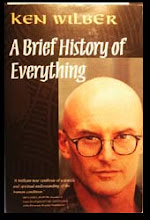Karl is right to ask me why I seem fixated here on apology to conservatives and those with traditional religious beliefs and not to liberals and those who have fled traditional belief to the next level of orange rationality and green pluralism.
SO GLAD YOU ASKED.
It's true that everybody deserves an apology because every position in religion and politics gets skewed, skewered, and vilified by its opposite side. And I have done my share of skewering in my lifetime and still do some in my heart.
And I want to make it plain that I understand and sympathize with every grievance against blue: shadows of judgment, hypocrisy, shame, and exclusion of outsiders. However,
- The responsibility is to those who CAN
- Green can see blue better than blue can see green
(Orange gets a pass because they're still so fresh from breaking free of blue that they can't see its good side.) - Attacks from orange and green are not only unleashing pre-existing red, but also pressuring blue and even some orange to regress to red. This is the world problem I seek to solve. Two examples:
- The London subway bombers were doctors and lawyers highly respected in their communities for their good works with the poor
- Moral Majority founder Jerry Fallwell opposed the preaching of politics from the pulpit until school prayer was outlawed. I "voted" for that at the time, but now I think it was a sleeping dog we should have let lie. Choose your battles!
Thus, because healthy green is theoretically capable of valuing blue, I'm calling them up on their tiptoes--into yellow--to do so. It was David Zeitler of Integral Institute who, in reading a draft chapter of my book, first interpreted it as a Bodhisattva call: A call to forgo the ego pleasures of putting down blue, put on the spiritual body armor that permits us to stand calmly in the face of being told we're going to hell, and lend a sympathetic ear to blue. In fact, not just lend an ear, but go back down to stand among them and acknowledge their professed highest value to love our neighbor as ourself. Acknowledge it, model it, draw it forth, and perhaps even learn it better ourselves.
Take a fundamentalist to lunch
A secular friend of mine reported this remark from her colleague who is a traditional Christian.
I have several people in my social and business circles who are secularists. But I'll bet you have no traditional Christian friends and no knowledge of who the Christians are in your professional life.I seek to open this up a bit. Take a fundamentalist to lunch. (For inspiration, see my post on A Black Man who Befriended the Klan.)
P.S. For a hoot, see potential illustrations of bodihisattva spiritual warriors:
a blue one, a green one, a yellow one and one that uncomfortably reminds me of myself--while I go ask permission to use them.
 Let's say I believe the world will end through global warming. My neighbor believes the world will end when Jesus comes to slay non-believers and take believers to heaven. My response to my belief is to buy guns to fend off the hordes of beach dwellers I expect to swarm my upland property. My neighbor's response to her belief is to stock up canned goods and plan to share them with all comers in the last days.
Let's say I believe the world will end through global warming. My neighbor believes the world will end when Jesus comes to slay non-believers and take believers to heaven. My response to my belief is to buy guns to fend off the hordes of beach dwellers I expect to swarm my upland property. My neighbor's response to her belief is to stock up canned goods and plan to share them with all comers in the last days.





